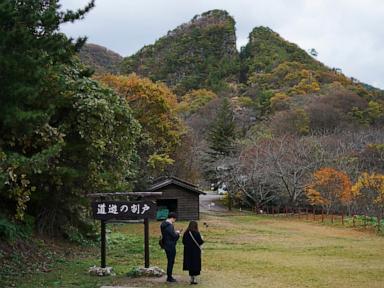ARTICLE AD BOX
ISRAEL’s army will face up to 50,000 Hezbollah fighters and their network of terror tunnels as troops carry on with their ground invasion of southern Lebanon.
Gearing up for the much-awaited showdown with its southern neighbour, the terrorists are stacked up with guns, ammunition and thousands of rockets underground – ready to lure Netanyahu‘s men into a killing zone.
 AP
AP AFP
AFP Getty
Getty
Troops and tanks last night stormed across the border hours after Israel revealed special forces had already attacked defence tunnels inside the country.
In a statement just before midnight Monday UK time, the IDF said its boots on the ground were backed by artillery and the air force.
Heavy artillery barrages were followed by the first reports of ground clashes as Israeli troops confronted its entrenched, fanatical enemy.
At first glance, southern Lebanon appears as a patchwork of quiet villages and agricultural fields, but underneath the surface lies a chilling war zone.
Inside the terror tunnels, Hezbollah fighters can move unseen, store weapons, and launch ambushes, creating a dangerous cat-and-mouse game with the Israeli Defense Forces.
The Iran-backed terrorists currently regarded as one of the world’s most highly armed non-state militia organisations.
Estimates place its army in the tens of thousands, and it is believed to possess about 100,000 rockets and missiles of all kinds.
The tunnels are designed to pull Israel’s military into a carefully constructed “fire trap,” a zone of devastation where every step forward risks disaster.
Stretching for miles on end, the underground labyrinth can link critical positions, allowing Hezbollah fighters to emerge, strike, and then vanish back underground before Israel can respond.
The strategy is simple but effective: use the tunnels to provoke and then lure Israel into the heavily fortified areas, where Hezbollah can wage guerrilla warfare on its own terms.
 X /@IranObserver0
X /@IranObserver0 A picture taken in 2020 shows part of a 200-metre-long tunnel that Hezbollah fighters built over three years to combat Israeli forcesX /@IranObserver0
A picture taken in 2020 shows part of a 200-metre-long tunnel that Hezbollah fighters built over three years to combat Israeli forcesX /@IranObserver0 Hezbollah is Iran’s biggest and best funded terror proxy group
Hezbollah is Iran’s biggest and best funded terror proxy group
With thousands of fighters entrenched in these positions, Hezbollah aims to turn southern Lebanon into a battlefield where Israel’s technological and military dominance could be blunted by the challenges of underground and urban warfare.
This is what Hezbollah refers to as the “fire trap”.
As Israeli forces advance, they’re drawn deeper into unfamiliar and hostile territory.
Meanwhile, Hezbollah fighters are hidden underground, awaiting with advanced weaponry — from precision-guided missiles to lethal anti-tank rockets.
In August, gave a glimpse inside their terror lair in a chilling threat to Israel.
A blood-curdling video released by the Lebanese terrorists revealed a giant underground roads with enough room for lorries to transport their deadly weapons.
Posters of leaders and soldiers adorn the tall stone walls as heavily armed men speed through the “missile city” in motorbikes.
Trucks loaded with enormous missiles make their way through the dark roads in a frightening glimpse of the terrorists’ arsenal.
It comes as…
- Elite IDF paratrooper & commando units launch ground invasion in Lebanon
- ‘Fierce’ clashes erupt between IDF troops and Hezbollah terrorists
- Israel declares no-go zone for Lebanese civilians south of the Litani River
- Israeli jets launch airstrikes on Beirut and southern towns in Lebanon
- Israel vows to ‘crush Hezbollah’ after launching ‘Northern Arrows’ invasion
- Hezbollah fanatics launch retaliatory rocket strikes against Tel Aviv
- UK Government charters emergency flight out of Lebanon for fleeing Brits
Drone footage then shows the seemingly endless terror maze, which also appears to be home to military tech and computers.
In the video, the narrator says: “These targets are in our possession and its coordinates are in our hands.
“These missiles are placed, deployed, and focused on targets and in perfect secrecy.”
He added: “The resistance now possesses precision and non-precision missiles, along with weapons capabilities so that if Israel imposes a war on Lebanon, Israel will face a destiny and reality it didn’t expect any day.
“War with us extends across all of Palestine – from the Lebanese border to the Jordanian border to the Red Sea, from Qiryat Shemona to Eilat.”
Hezbollah's decade of destructive preperation

by Juliana Cruz Lima, Foreign News Reporter
Following the 2006 Lebanon War, in which Israel and Hezbollah fought to a bloody standstill, the terror group began preparing for the next conflict.
They constructed a vast underground network across southern Lebanon.
The lessons of that war, in which Hezbollah’s small, mobile units were able to surprise and sometimes overpower Israeli forces, have been embedded in its military doctrine ever since.
The tunnels are now a key part of this strategy, allowing Hezbollah to replicate the tactics of insurgencies around the world: strike fast, disappear, and use the enemy’s size and strength against them.
Some of these tunnels have been found stretching into Israeli territory, designed to facilitate surprise raids deep inside northern Israel.
In 2018, the IDF launched Operation Northern Shield, a months-long mission to detect and destroy Hezbollah’s cross-border tunnels.
The discovery of these tunnels — some reinforced with concrete and running dozens of meters underground — revealed just how advanced Hezbollah’s capabilities had become.
Last month, Hezbollah revealed its hidden terror tunnel network from which missiles can be launched in a chilling threat to Israel.
A blood-curdling video released by the Lebanese terrorists revealed a giant underground roads with enough room for lorries to transport their deadly weapons.
Posters of leaders and soldiers adorn the tall stone walls as heavily armed men speed through the “missile city” in motorbikes.
Trucks loaded with enormous missiles make their way through the dark roads in a frightening glimpse of the terrorists’ arsenal.
Drone footage then shows the seemingly endless terror maze, which also appears to be home to military tech and computers.
Inside the terror tunnels, Hezbollah fighters can move unseen, store weapons, and launch ambushes, creating a dangerous cat-and-mouse game with the IDF.
They can also move into a much larger network of bunkers, missile silos, and command centres, deeply embedded in civilian areas.
These tunnels – which can stretch for miles – link critical positions, allowing Hezbollah fighters to emerge, strike, and then vanish back underground before Israel can respond.
Reports also suggest that Hezbollah has been expanding its tunnel network in southern Lebanon in recent weeks.
GROUND INVASION
Israel launched its showdown with Hezbollah terror troops last night with a ground invasion of southern Lebanon.
The Israeli military said “intense fighting” was taking place Tuesday and warned Lebanese residents not to travel by vehicle in the region.
“Intense fighting is taking place in southern Lebanon,” wrote Avichay Adraee, a spokesman for the Israeli army, in a message published in Arabic on Telegram.
“For your personal safety, we ask you not to travel by vehicles from the north to the south of the Litani River.”
Lebanese media reported heavy shelling in the towns of Khiam and Wazzani, on the southern border with Israel.
US State Department spokesman Matthew Miller later confirmed Israel informed American allies about the raids, which he said were as “limited operations focused on Hezbollah infrastructure near the border”.
Further clashes were also reported early today as Hezbollah fighters claimed to have repelled a push into orchards in Adaisseh and Kafr Kela near the southern frontier.
More battlefields were reported to have erupted around the southern communities of Blida and Ainata.
Israeli sources said the focus of the operation was on clearing out Hezbollah terror sites to halt rocket attacks which have driven 60,000 from homes in northern Israel in the last 11 months.
 EPA
EPA AP
AP.png)
 1 month ago
5
1 month ago
5








 English (US)
English (US)